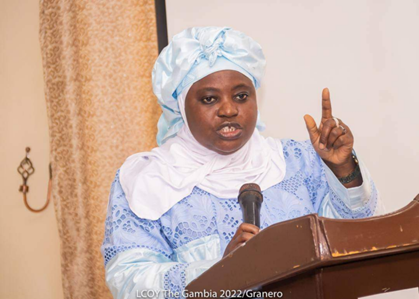
The 1994 Act, according to Hon. Manjang, no longer reflects the environmental realities of today. “So much has changed since 1994,” she said while addressing lawmakers. “New international conventions have been ratified, new local challenges have emerged, and there are wider global priorities now especially around climate change and sustainable development.”
She stated that at the heart of the new bill lies the principle of sustainable development, improving people’s quality of life today without harming the chances of future generations to do the same.
This principle, Hon. Manjang reminded the Assembly, is not new. “It is firmly rooted in the 1997 Constitution of The Gambia.”
She outlined that the Environmental Bill 2025 is not just a cosmetic update but a complete overhaul designed to fill the many legal and policy gaps that have developed over the last three decades.
The minister pointed out that global frameworks such as the United Nations Agenda 2021 for Sustainable Development now guide how countries should manage environmental resources. “We need our laws to reflect these international standards and respond to today’s challenges,” she emphasised.
She highlighted that the bill will introduce comprehensive regulations on population and its environmental impact.
“It mandates safe chemical and pesticide management, tackles climate change through targeted mitigation and adaptation strategies, promotes sustainable and integrated waste management, strengthens community engagement and participation at all levels of environmental decision-making and adopts a macroeconomic approach to environmental planning and management,” she said.
She added: “These are areas that were simply not covered or were only lightly touched upon in the 1994 Act,” Hon. Manjang explained. “Now, we are setting up a legal structure that speaks directly to the needs of Gambians today and tomorrow.”
The minister’s presentation gained attention by many in the Assembly. This prompted them to give the bill their blessings and passed it for a third reading.





